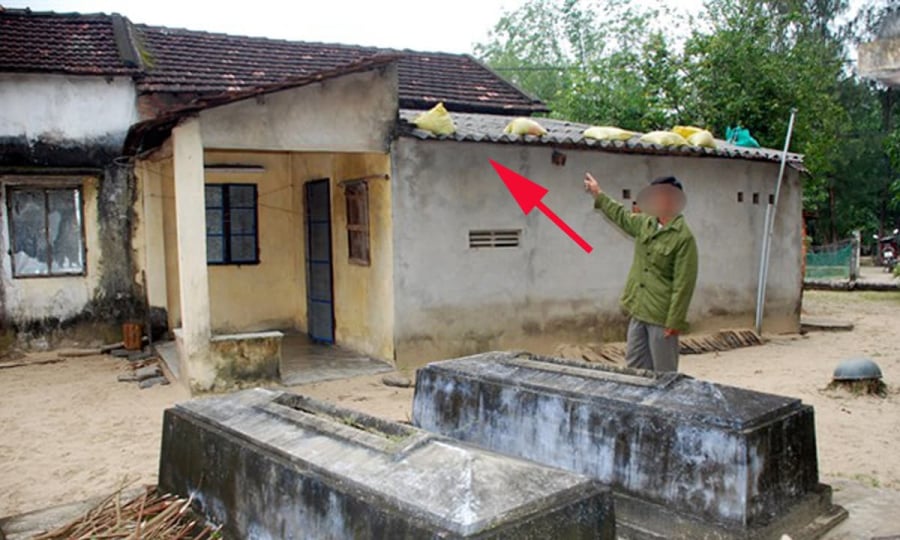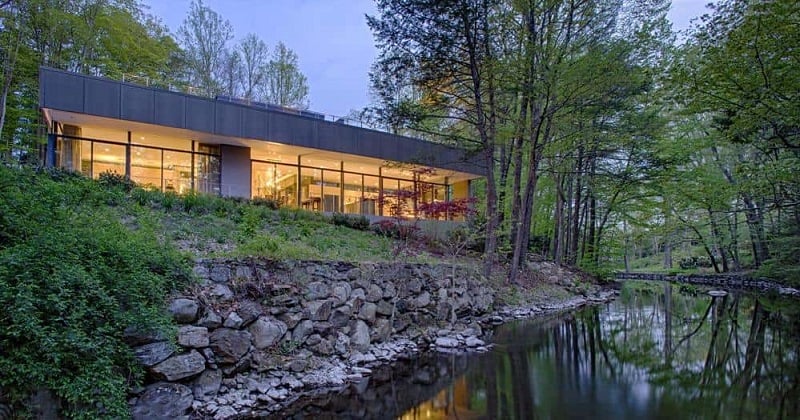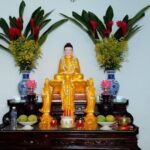Feng shui, or the art of harmonizing one’s environment, continues to play an important role in the lives of the Vietnamese. There are numerous feng shui taboos when it comes to building and buying a home that homeowners should avoid. One such inauspicious setting is having a grave in front of your house and a pond, stream, or ditch behind it. This arrangement is believed to bring misfortune, affecting the health and wealth of the household.
The Unfortunate Landscape: Grave in Front of the House
Graves are places of burial for the deceased. In ancient times, burial practices were not as regulated, resulting in many gravesites located in front of or around people’s homes. In some regions, it was even a custom for families to bury their loved ones within their garden compounds. Thus, the phrase “mộ trước cửa” (“grave before the door”) came to be, indicating the unfortunate placement of a grave right before the entrance of a home.

In the eyes of many, graveyards are associated with bad luck. Having a grave in plain sight when opening the door is considered extremely inauspicious.
To many, graveyards evoke a sense of gloom and doom. Having one in direct view when opening your front door can induce a sense of unease and fear. Aside from the psychological impact, the presence of a grave can also affect the energy flow and balance of a home, according to feng shui principles. Living in such an environment can leave one feeling anxious and uncomfortable, which, over time, can take a toll on one’s health and overall well-being.
The Unfortunate Landscape: Body of Water Behind the House
According to ancient wisdom, having a body of water behind your house is also considered unfavorable. This belief stems from the understanding that the back of a house represents the health and longevity of its occupants. The saying, “Sơn quản nhân đinh, thủy quản tài,” translates to “mountains govern longevity, while water governs wealth.” Therefore, a clean water source in front of a mountain at the back of a house is believed to bring longevity, good health, and prosperity to its inhabitants.
In contrast, having a body of water behind your home is thought to create a damp and mosquito-infested environment, detrimental to one’s health. It is also believed that the presence of water can indirectly cause the house to collapse, especially in rural areas where older homes are often built with materials prone to sinking. This combination of factors was considered a serious threat to the safety and well-being of the occupants, and thus, avoided at all costs.

A body of water behind the house is considered unfavorable according to ancient wisdom, impacting the health and longevity of the occupants.
Additionally, as people tend to gather and socialize at the front of their homes, a water body at the back can attract curious children who may be at risk of drowning. The potential for tragedy and the difficulty of detecting distress calls from the rear of the house further emphasize why our ancestors warned against this arrangement.
The impact of a home’s environment on its inhabitants is profound. Our ancestors, rooted in their love for their homeland and community, were cautious and meticulous about the placement and orientation of their homes. Their wisdom and experience in feng shui have endured, leaving us with valuable insights that continue to guide us today.
The Art of Incense and Floral Arrangements: Unveiling the Secrets of Wealthy Homes
The art of flower arrangement, or ikebana, has long been a revered practice in many cultures, especially in the East. The placement of flowers, especially on altars, is often steeped in tradition and symbolism. The affluent are known to place flower vases on the left side of the altar when offering incense. This practice is rooted in a deeper meaning that reflects their understanding of the delicate balance between life and death.
The Prosperity Principle: Unveiling a Life of Abundance and Fortune
“The Money Tree, also known as the Pachira Aquatica, is a symbol of prosperity and good fortune in Feng Shui. When placed in your home according to these principles, it is believed to attract wealth and abundance, bringing success to your endeavors. Its vibrant presence not only adds a touch of natural beauty to your space but also infuses it with a sense of positive energy, creating an environment conducive to growth and prosperity.”





































